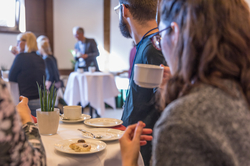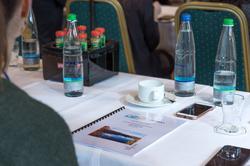Access to technologies and networking opportunities were at the core of the lively discussions sessions. Researchers talked about the need for exchange on available technologies in Freiburg as well as worldwide cooperation especially regarding single cell analysis technologies and statistical modelling. Vice-president of the University of Freiburg Prof. Dr. Gunter Neuhaus joined in the discussion to affirm the full support of the university rectorate in realising technological core facilities – that biostatistical resources were being built to cover for the growing need for analysing large datasets. With structures like the Signalling Factory, the GALAXY Platform and Imaging facilities at the University a good basis is set for strong technological development in Freiburg. The TRISIGNIA network, a cooperation of signalling research facilities in Freiburg, Basel and Strasbourg, opens up opportunities for CIBSS researchers on an international scale. Global networking was perceived as already being a strong point inside the CIBSS network. All groups agreed that cooperation on a local scale and to lay people outside academia should be strengthened. In a final speech Prof. Dr. Wilfried Weber, member of the speaker team of CIBSS, emphasized that the common goal of all projects and CIBSS staff is to “make CIBSS the place to be for integrative signalling biology – worldwide”.
More information on integrative signalling research: Biological signalling research examines the biological communication processes that are fundamental to life and health. It explores how cells sense and react to diverse conditions and cues, and how they communicate with one another to form and maintain a functioning organism – whether it be human, animal or plant. While knowledge about individual signalling processes has expanded greatly in recent years, it is still unclear how the plethora of signals are coordinated and how they are intertwined with other fundamental biological processes such as metabolism.








